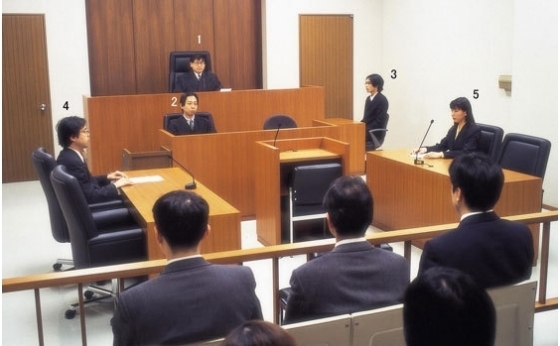What is a Civil Case Called When It Goes to Court

A civil case is also referred as a private cause or a ‘lawsuit’, meaning a person when sues another person or organisation, the case is called civil case. These cases are tried in civil courts. The procedure of the trial is that the person who sues presents evidence of discrimination or injustice committed against them by the defendant and then the court asks the defendant to make their case before it. These types of cases are common in the United States, based on the consumers protection and rights.
Instructions
-
1
A civil case is different from a criminal case, which is tried by the prosecutors or attorneys (government lawyers) on the basis of criminal acts in violation of state laws. For example, a crime committed under penal code or criminal procedure code (CrPC).
-
2
A civil case is also referred as a private case, and is filed by a person to sue another person or an organisation, claiming some damages to them (financial or others) because of certain actions of the person or organizations, who are accused.
-
3
The trial or proceedings of a civic case is done in the civil courts, where first the person who sues is asked to present their case before the court, including evidence why they think that their interests have been damaged. They must provide solid evidence to support their claim.
-
4
The civil cases generally involve compensation. In the US, for example, consumers often sue companies because of damages done to their interests as result of use of different products. The suits are more common in communication and pharmaceutical industries, and involve collective damage compensation.
-
5
In the civil suits, generally no arrests are made before the trial or accused is sent to jail for the trial or during the period of trial. During the case, fair and open opportunity is given to both parties and if the accuser wins, they can be liable for compensation.
-
6
An important aspect of civil cases or suits is settlement. Often, accuser and accused, reach an out-of-court settlement, and thus the case is dismissed thereon. The settlements are more common when the suit is against a company or a state department.
-
7
If the person who files a suit wins the case, they may also be liable for compensation for legal costs of the case i.e. lawyers fee etc. These compensation amounts are charged to the person who is accused in the suit.
-
8
In the US, and also in some other countries where industrial protection laws are enforced, lawyers offer workers or consumers to fight on their behalf for their rights in the civil courts. They do not charge any fee from them in advance. Instead, they offer their services on no-win-no-fee basis.







